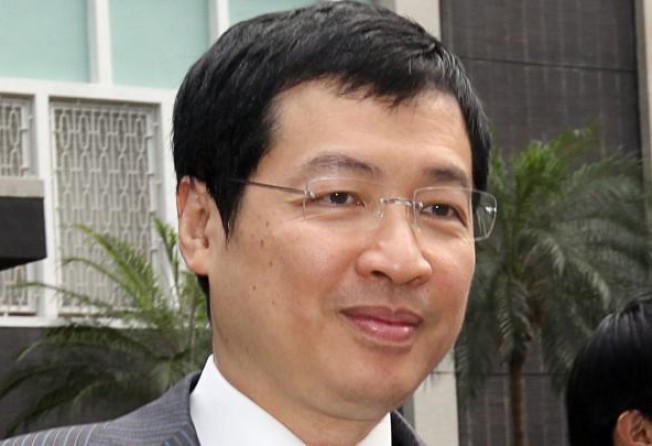NPC may limit Hong Kong's right to elect chief executive
Academic warns that Basic Law committee has right to veto leader it doesn't approve of

A law academic has warned that the National People's Congress Standing Committee might limit Hong Kong's rights to elect its chief executive by universal suffrage despite the assurances contained in the Basic Law, the city's mini-constitution.
Eric Cheung Tat-ming, assistant law professor at the University of Hong Kong, made the observation a day after Qiao Xiaoyang, chairman of the NPC Law Committee, said it reserved the right to veto the election of any chief executive of whom it did not approve.
"I can't rule it out," Cheung said when asked if the standing committee might interpret Article 45 of the Basic Law in effect to overrule a chief executive of whom it did not approve. "If it makes a decision to suppress [our rights], to be frank, there will be little Hong Kong could do.
"The Chinese government has long insisted on keeping its promises made publicly. This [issue] will be a crucial watershed to test if the central government remains willing to honour its promise of allowing genuine universal suffrage or pressing ahead with a specious and fake one."
Article 45 states that its ultimate aim is "the selection of the chief executive by universal suffrage upon nomination by a broadly representative nominating committee in accordance with democratic procedures".
Cheung said the NPC's interpretation of Article 45 was unlikely to be legally challenged as the final power to interpret it rests with the standing committee.
Albert Chen Hung-yee, a HKU law professor and a Hong Kong member of the Basic Law Committee under the NPC Standing Committee, said: "The central government stresses [the condition of] loving the nation and Hong Kong. It might try to achieve this goal by raising the [nomination] threshold.
"Pan-democrats would certainly oppose a threshold higher than the existing one. They have reason to worry."
On Qiao's remarks that the nominating committee might follow the "majority rule" in deciding who could be put to a popular vote, Chen said he believed it did not necessarily mean an aspirant would require endorsement of all committee members or more than half of the members.
Fellow Hong Kong member of the Basic Law Committee, Johnny Mok Shiu-luen SC, said he had no idea if the standing committee might interpret the relevant Basic Law clause.
On Qiao's remarks that the nominating committee shall propose candidates, Mok said the Basic Law stipulated "nomination by a broadly representative nominating committee". He said this committee should "make a collective decision". Asked to define "democratic procedures", he said it usually involved "voting".
Bar Association chairman Paul Shieh Wing-tai SC yesterday told a Commercial Radio show that "loving the nation and Hong Kong" - a criterion laid down by Beijing officials for the chief executive - was a "political" not "legal" phrase.